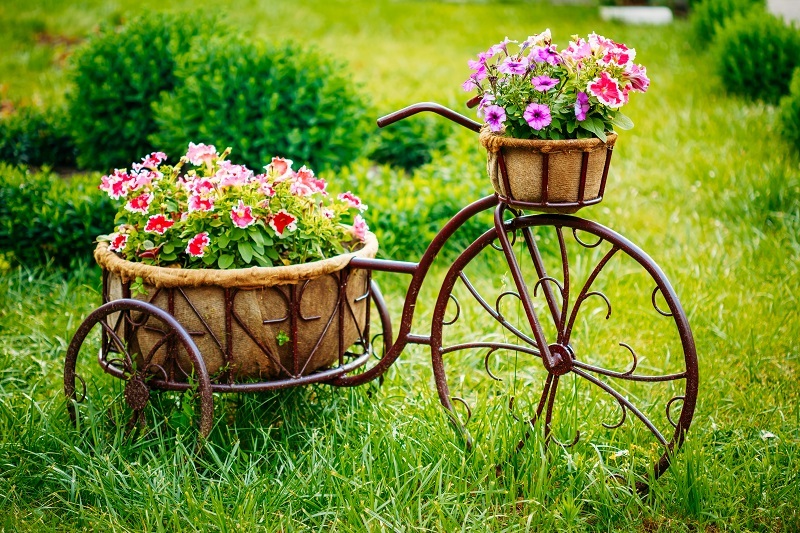Discover 8 Astounding Facts About Sunflowers
Posted on 14/08/2025
Discover 8 Astounding Facts About Sunflowers
The sunflower, with its radiant yellow petals and cheerful disposition, has captivated humans for centuries. Whether you spot them lining country roads or see Van Gogh's immortal works, these magnificent blooms are much more than just beautiful faces turned toward the sun. In this comprehensive article, we'll delve deep into 8 fascinating facts about sunflowers that will make you appreciate these botanical wonders even more. Get ready to discover the rich tapestry of history, science, and culture that surrounds this iconic plant!

1. Sunflowers Trace Their Roots to Ancient Civilizations
Did you know that sunflowers were first cultivated over 4,500 years ago by indigenous peoples of North America? Long before they graced European gardens, Native American tribes valued these vibrant plants for far more than their beauty. Sunflowers were grown for food, oil, dye, and even medicinal purposes.
- Food Source: Sunflower seeds were ground into flour and used to make bread, mush, and cakes.
- Natural Dye: The petals and pollen provided a vivid yellow pigment for textiles and body paints.
- Medicinal Uses: Sunflower infusions and poultices were believed to have healing properties for various ailments.
Modern agriculture owes much to these early cultivators who recognized the remarkable potential of sunflowers. In the 16th century, Spanish explorers brought sunflower seeds to Europe, sparking a global appreciation for these golden blooms.
2. Sunflowers Can Grow Astonishingly Tall
When it comes to size, sunflowers truly stand tall--sometimes literally. Most garden varieties grow between 5 and 12 feet, but the tallest sunflower on record reached a staggering 30 feet and 1 inch (9.17 meters)! That's almost as high as a three-story building.
How Do They Get So Tall?
The answer lies in their unique genetic makeup and their ability to maximize sunlight absorption. Their thick, fibrous stems provide much-needed support as they climb skyward. Each year, gardeners around the world compete in "tallest sunflower" contests, pushing the limits of this plant's potential.
- The world record sunflower was grown by Hans-Peter Schiffer in Germany in 2014.
- Some varieties are specifically bred for height, such as the Russian Giant.
- In ideal conditions--full sun, rich soil, plenty of water--sunflowers can add several inches in just days!
For green thumbs and curious kids alike, growing a giant sunflower can be both fun and rewarding.
3. Sunflowers Exhibit Heliotropism--They "Follow the Sun"
Perhaps the most iconic trait of sunflowers is their remarkable ability to track the sun across the sky. This phenomenon is called heliotropism. Young sunflower plants face east in the morning, follow the sun's arc during the day, then reorient themselves to the east overnight, ready for the next sunrise.
Why Do Sunflowers Track the Sun?
This movement maximizes photosynthesis, allowing the plant to capture the most sunlight for energy. As sunflowers mature, they eventually face east permanently--an adaptation thought to attract more pollinators, thanks to warmer flower heads.
- Heliotropism is driven by growth hormones called auxins that elongate cells on the shaded side of the stem.
- This fascinating movement ceases in fully mature sunflowers as stems stiffen and growth slows.
- Scientists are studying sunflowers' solar-tracking ability for inspiration in solar panel technology!
4. Sunflowers Are a Symbol of Positivity and Hope
Across various cultures and throughout history, sunflowers have always symbolized warmth, happiness, and optimism. Their golden faces evoke the sun, making them emblematic of joy and renewal.
- In Greek mythology, the sunflower's story involves the nymph Clytie, who turned into a flower and eternally followed the sun god Helios.
- In many cultures, sunflowers symbolize loyalty and long life.
- During the Chernobyl disaster, sunflowers were used as a powerful symbol of peace and environmental healing.
From inspirational artwork to wedding bouquets, the enduring meaning of sunflowers continues to brighten lives around the globe.
5. Sunflowers Boost Biodiversity
Did you know that planting sunflowers can have a dramatic impact on your local ecosystem? These blossoms are magnets for pollinators, bringing bees, butterflies, and even birds into your garden. Healthy sunflower patches support entire mini-ecosystems!
- Bees visit sunflowers for their nectar and rich pollen, which is essential for colony survival.
- Birds, especially finches and chickadees, feast on mature seeds in late summer and fall.
- Sunflowers even attract beneficial insects like ladybugs, which help control garden pests naturally.
By including sunflowers in your landscape, you're not just adding beauty--you're supporting biodiversity and the health of our planet.
6. Sunflowers Clean Polluted Soil--A Process Called Phytoremediation
Here's one of the most fascinating sunflower facts: sunflowers can help clean toxic heavy metals and radioactive material from soil! This environmental superpower is possible thanks to a process called phytoremediation.
- After the Chernobyl nuclear disaster (1986) and the Fukushima disaster (2011), sunflowers were planted to absorb radioactive contaminants like cesium and strontium.
- Sunflowers' deep roots draw in toxins, locking them in their tissues, allowing for safer land restoration.
- This makes sunflowers a green solution for rehabilitating polluted or contaminated lands around the world.
The next time you admire a blooming sunflower, remember that it's more than just a pretty face--it's a hardworking environmental hero.
7. Sunflower Seeds Are Packed with Nutritional Goodness
Sunflower seeds aren't just a popular snack; they're a highly nutritious addition to your diet. These tiny seeds are rich in protein, healthy fats, vitamins, and minerals, making them a true "superfood."
Health Benefits of Sunflower Seeds Include:
- High in Vitamin E: Supports skin health and immune function.
- Source of Magnesium: Essential for muscle, heart, and bone health.
- Good Fats: Abundant in unsaturated fat, which can support heart health.
- Rich in antioxidants and phytochemicals that help fight inflammation.
- Can be enjoyed roasted, raw, or added to salads and baked goods!
Adding a handful of sunflower seeds to your daily routine is an easy way to boost nutrition and flavor at mealtime.
8. The Sunflower Industry Is Big Business Worldwide
Sunflowers have transcended gardening to become an economic powerhouse. Global sunflower seed production exceeds 50 million metric tons annually! The sunflower industry is crucial for oil production, snacks, birdseed, and more.
- Sunflower oil is valued for its light flavor and high smoke point, making it a popular cooking oil in kitchens worldwide.
- Major sunflower-producing countries include Russia, Ukraine, Argentina, China, and the United States.
- Sunflowers are also grown for ornamental purposes, adding vibrancy to the cut flower market.
Did you know?
Ukraine is known as the "breadbasket" of Europe partly due to its vast sunflower fields! The country's iconic golden landscapes are so integral that the sunflower is a national symbol of peace and prosperity.

Bonus: Interesting Variations and Hybrid Sunflowers
While the classic yellow sunflower is best known, breeders have developed dozens of stunning varieties. Modern gardens may feature sunflowers in creamy whites, deep reds, soft oranges, and even bi-colored petals!
- 'Moulin Rouge' and 'Chianti': Striking deep red sunflowers for dramatic contrast.
- 'Teddy Bear': Fluffy, double-petaled blooms perfect for bouquets and containers.
- 'Italian White': Elegant, creamy white sunflowers adored by pollinators.
- Sterile (pollen-free) hybrids are available for allergy sufferers and cut flower enthusiasts.
With such diversity in shape, size, and color, there's a sunflower variety for every gardener and landscape.
Conclusion: Celebrate Sunflowers--Much More Than Meets the Eye!
From their ancient roots and record-breaking heights to their environmental benefits and symbolic power, sunflowers truly are one of nature's most astounding creations. Whether you grow them for beauty, biodiversity, harvest, or history, understanding these 8 incredible facts about sunflowers will deepen your appreciation for these iconic sun-lovers.
- Sunflowers offer ecological, cultural, and economic value globally.
- They serve as both a nourishing food source and a powerful agent for environmental restoration.
- Their striking appearance makes them a favorite for art, gardens, and positive symbolism worldwide.
So next time you spot a field of sunflowers waving in the breeze, pause to remember their extraordinary story--and maybe even grow some of these sunny giants yourself!
Looking for more sunflower inspiration? Try planting a sunflower of your own and discover firsthand what makes these flowers astoundingly special.
Latest Posts
Cut Flower Care: A Step-by-Step Guide
Orchid Care Insights: A Practical Guide
Endurance in Petals: Our Top 12 Long-Lasting Favorites







